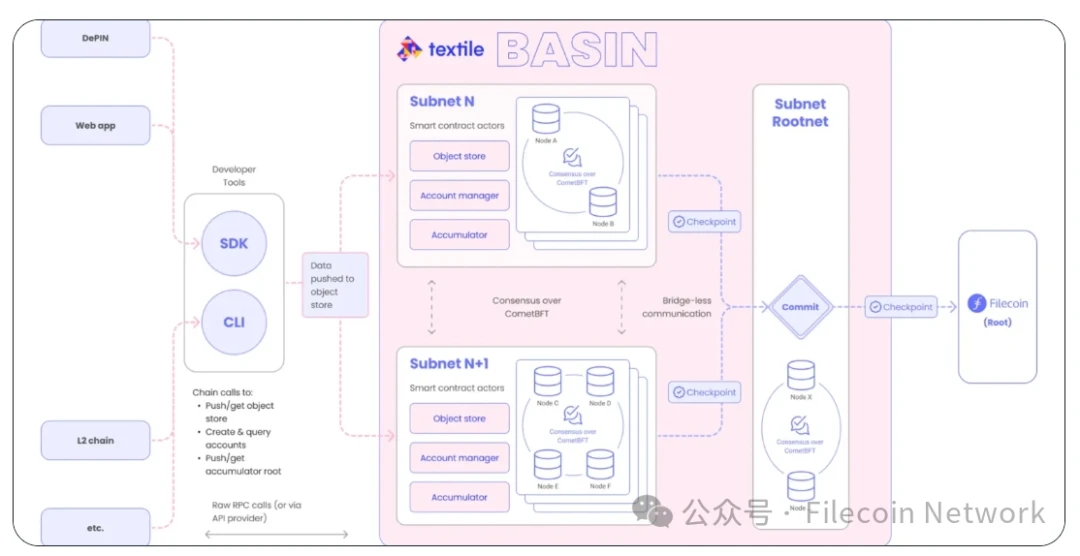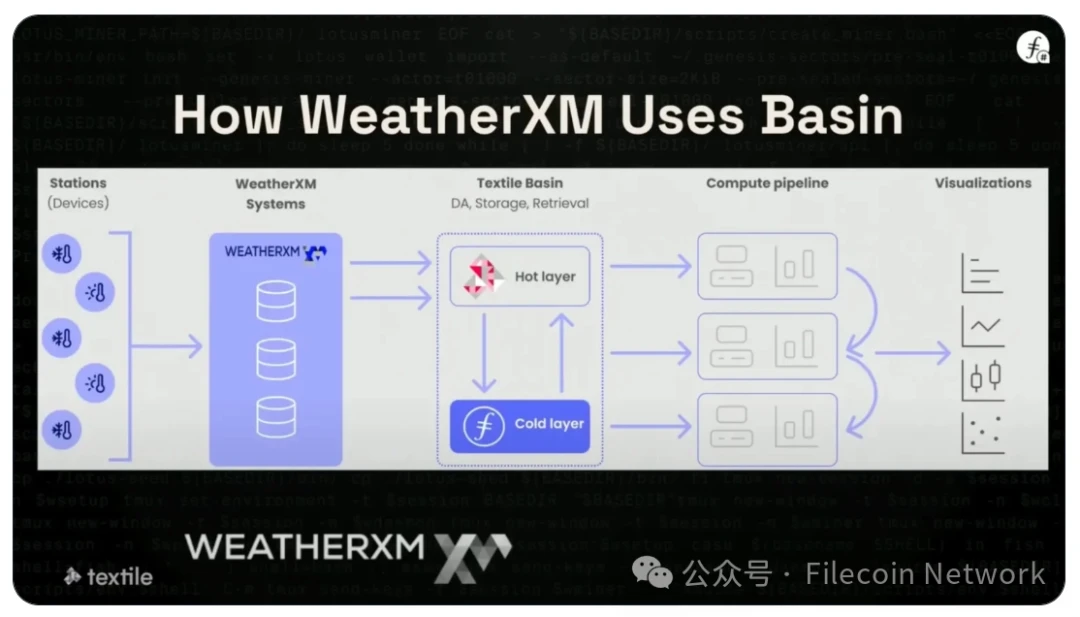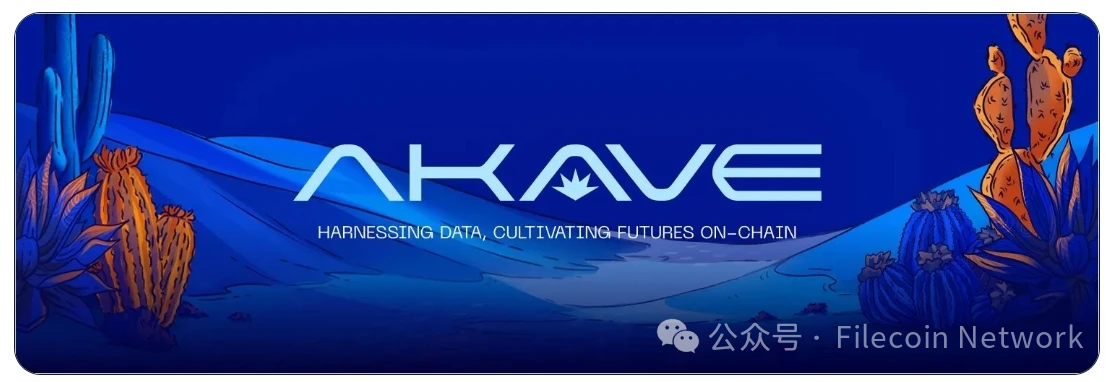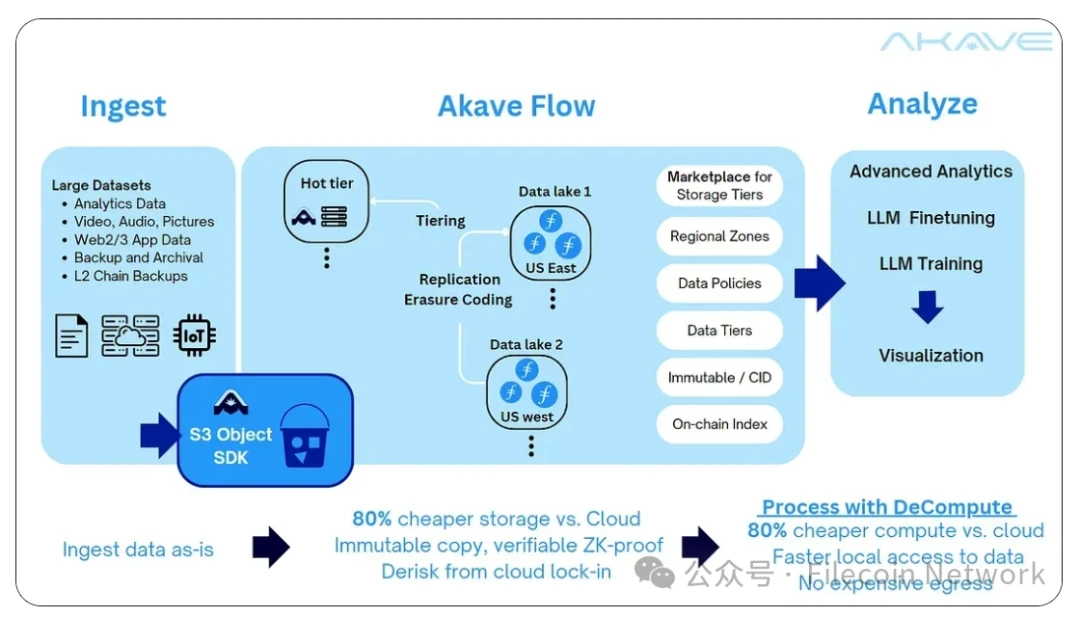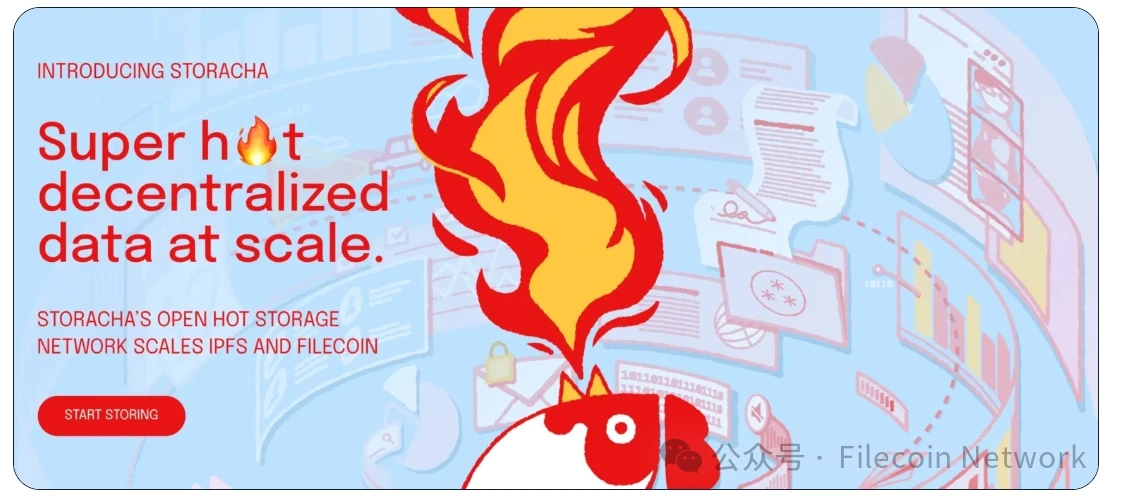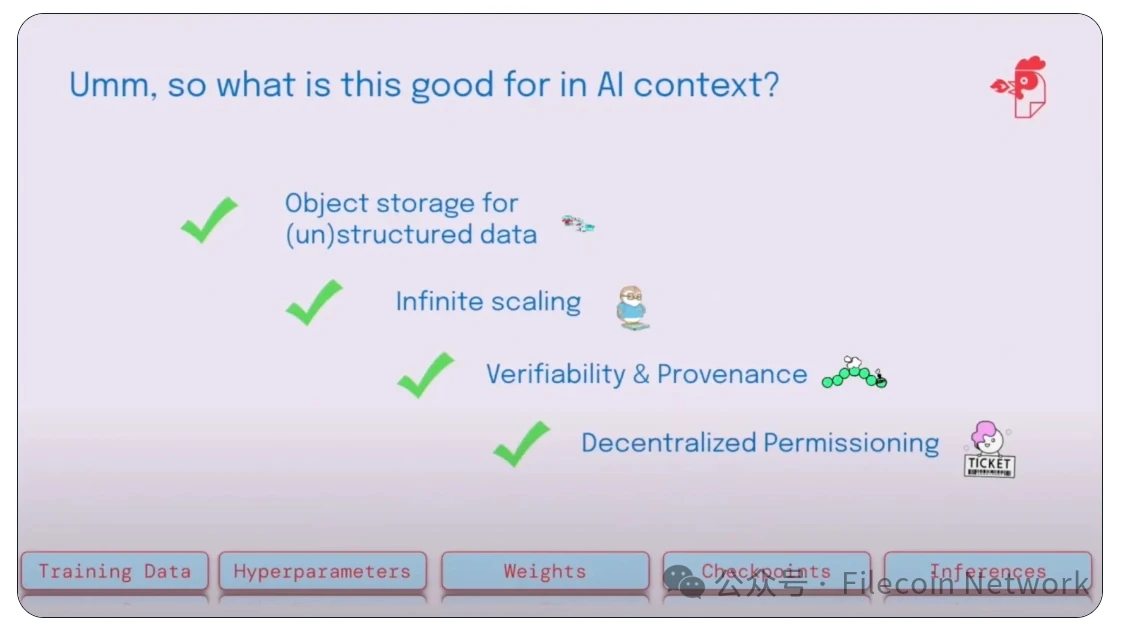Overview of the current status of Layer 2 technology development on Filecoin
Original author: Filecoin Network
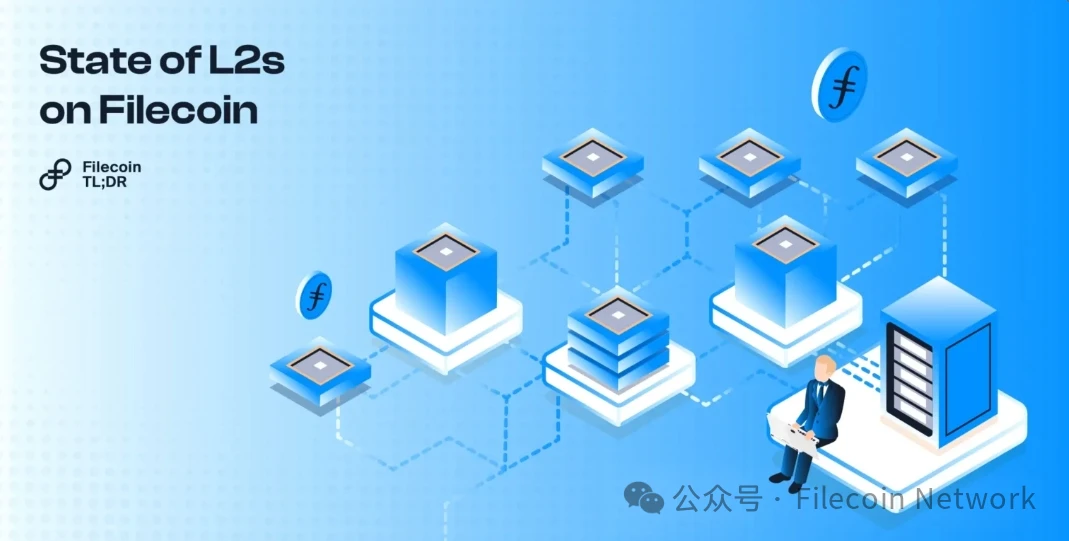 Layer 2 (L2) is an important innovation in blockchain technology that enhances the scalability, efficiency, and functionality of their respective networks. For Filecoin , L1 focuses on decentralized storage, and L2 solutions play a vital role in bringing new features to network infrastructure.
Layer 2 (L2) is an important innovation in blockchain technology that enhances the scalability, efficiency, and functionality of their respective networks. For Filecoin , L1 focuses on decentralized storage, and L2 solutions play a vital role in bringing new features to network infrastructure.
As Filecoin continues to grow, L2 solutions are driving Filecoin to market and tailoring products for creators focused on specific verticals. This article explores the current state of L2 solutions on Filecoin, highlighting groundbreaking advances and future directions.
Underlying Architecture
Before diving into L2, it is recommended to first understand the shared framework on which Filecoin L2 is based: InterPlanetary Consensus (IPC).
Video link: https://youtu.be/aRyj9kOvW7I
Interstellar Consensus (IPC) is a framework designed to solve the scalability problem of decentralized applications (dApps). IPC does this by allowing the creation of subnets, which are independent blockchains that can be customized with specific consensus algorithms based on the needs of the application. These subnets can communicate seamlessly with each other, minimizing the need for cross-chain bridges, but are all anchored in the Filecoin root network.
The creators chose IPC for three reasons: First, the IPC subnet inherits the security features of its mainnet, ensuring that the dApps it hosts are highly secure. Second, IPC uses the Filecoin Virtual Machine (FVM) , a general-purpose execution environment that supports multiple programming languages and enables greater interoperability with other blockchains. Finally, IPC is tightly integrated with Filecoin, a large decentralized storage network, providing dApps with powerful data storage and retrieval capabilities. This combination of scalability, security, interoperability, and storage integration makes IPC an extremely attractive choice for developers to build the next generation of dApps.
Filecoin’s L2 solution drives advancements in data management
The demand for efficient data management continues to increase, and to meet these needs, Filecoins L2 solutions are constantly improving. These advances focus on optimizing data storage and retrieval, providing greater scalability and cost-effectiveness in a variety of applications. Basin is such a startup leading the trend.
Source: Basin Introduction: Filecoin’s First Data L2 (https://blog.textile.io/basin-launch-overview)
Basin is the first data L2 on Filecoin, marking an advancement in decentralized data infrastructure and bringing a range of new services for data-intensive applications to the Filecoin ecosystem:
Main features and innovations
-
Hot and cold data tiers: Basins two-tier approach combines a hot cache tier for real-time data access and a cold storage component for long-term archiving. This setup ensures both instant access and cost-effective storage to meet different data needs.
-
Scalable Infrastructure: Basin’s architecture combines Filecoin’s secure storage capabilities with a flexible, scalable design ideally suited for processing large amounts of data from IoT and AI applications.
-
Familiar interface: Basin supports compatibility with S3, allowing developers to use familiar tools to manage data, which helps to make the transition to decentralized solutions smoother.
Source: The New Era of Web3 Scaling: The World’s First Data L2 Based on Filecoin – Marla Natoli ( https://youtu.be/rqdX2yx4xa4?feature=sharedt=806 )
Basin is actively being used in the real world, such as processing weather data from decentralized sites using WeatherXM , and generating synthetic data for smart contracts. These use cases highlight Basins ability to efficiently store, manage, and monetize a variety of data types, advancing the practice of artificial intelligence and machine learning.
Simplifying decentralized storage: innovations and challenges
Effectively managing decentralized storage requires overcoming challenges related to user accessibility, cost, and integration. Providing more intuitive and cost-effective tools for data management will help address these challenges. This is where Akave comes in.
Source: Akave X (https://x.com/akavenetwork)
Akave is the first L2 storage chain to support on-chain data lakes, providing a new way to manage large amounts of data in decentralized networks. Data lakes are used in traditional enterprises to manage all types of data, often input into large-scale computing flows (e.g. for big data analytics). By leveraging Filecoins infrastructure, Akave aims to become a leading solution in the field of decentralized data management, focusing on enhancing data processing capabilities and integrating advanced security measures.
Main features and innovations
-
On-chain data management: Akave focuses on creating an on-chain data lake, providing a highly scalable and secure solution for managing massive data directly on Filecoin.
-
Advanced data processing: The platform supports customizable data processing options such as replication strategy and erasure coding to improve data security and availability.
-
Integration with Filecoin: Akave leverages Filecoin’s blockchain to improve data management, security, and decentralization.
Source: Akave: AI Trust Unlocked ( https://medium.com/@angelo_schalley/akave-ai-trust-unlocked-3422d5dc30a4 )
Akaves decentralized data lake revolutionizes data storage by placing data close to the computing stack, with faster local access, lower egress costs compared to centralized clouds, and ensures immutability and integrity through ZK proofs. Through an open marketplace, users can enjoy competitive pricing and diverse choices. Through Akaves integration with Filecoin Interstellar Consensus (IPC) , users can continuously understand the state and history of their data, thereby enhancing transparency and trust.
Powering AI and unstructured data storage with Filecoin’s L2 solution
In the fields of AI and unstructured data, specialized storage solutions are essential for efficiently managing and processing large datasets. Filecoin’s L2 solutions, such as Storacha Network , are stepping up to provide high-performance storage tailored for these needs.
Source: Storacha Network (https://storacha.network/)
Storacha Network is a cutting-edge storage solution designed to enhance artificial intelligence and unstructured data management. Through Filecoins powerful infrastructure, Storacha Network tailors high-performance decentralized storage for advanced applications. Looking ahead, Storacha hopes to develop into a consortium network with more public participation, which will enhance global data access and promote broad community participation through decentralized CDN.
Main features and innovations
-
High-Performance Storage: Storacha provides decentralized hot object storage, ensuring fast access and retrieval of data, which is critical for AI applications that require fast processing and scaling.
-
Proof and Ownership: Users maintain control of their data through UCAN (User Controlled Authorization Network), providing secure cryptographic proof of data ownership and access rights without the need for frequent blockchain interactions.
-
Efficient Data Processing: Storacha processes large datasets by sharding files, facilitating fast retrieval and efficient management, which is critical for large-scale AI operations.
Source: Storacha Network Unveiled: Bringing Heat to AI Data Storage – Alexander Kinstler (https://youtu.be/WLOdWD 2b FOA? feature=sharedt= 86)
Storacha Network supports a range of AI use cases by providing fast, scalable object storage optimized for structured and unstructured data. It meets key requirements such as verifiability and provenance for decentralized GPU networks, ensuring that the training process executes as expected and maintains checkpoints.
Additionally, Storacha allows users to bring their own storage devices into training jobs, facilitating the sharing of hyperparameters and weights while ensuring ownership of training results.
Summarize
In summary, Filecoins L2 solution is paving the way for a new era of decentralized data management. Innovations like Basin , Akave , and Storacha Network not only solve challenges in scalability and cost, but also improve the efficiency and performance of data processing. As these technologies develop, they are expected to change the way data is stored, managed, and used, which means significant progress in the Web3 ecosystem.
To learn more about Basin , Akave , or Storacha Network , watch their keynote speeches at the recent Filecoin Development Summit .
Many thanks to Jonathan Victor for reviewing this article and providing valuable insights.
Disclaimer: The above information is for reference only and does not constitute investment, financial, legal or other advice, nor is it an endorsement, invitation or recommendation to use any specific service, product or application.
This article is sourced from the internet: Overview of the current status of Layer 2 technology development on Filecoin
Related: What happens when all tokens are re-staked?
Original article by: Marco Manoppo Original translation: TechFlow Hello everyone, It’s been a while since I shared this with you all. Lately, I’ve been thinking a lot about the future of restaking, as this has been a major topic dominating the market over the past 18 months. To simplify the discussion, I may refer to EigenLayer or AVS in this article to describe the broad concept of re-staking, but I use the term broadly to cover all re-staking protocols and the services built on top of them, not just EigenLayer. The concept of EigenLayer and re-staking has opened Pandoras box. Conceptually, it makes a lot of sense to scale the economic security of a highly liquid and globally accessible asset that allows developers to create applications on-chain without having to…
